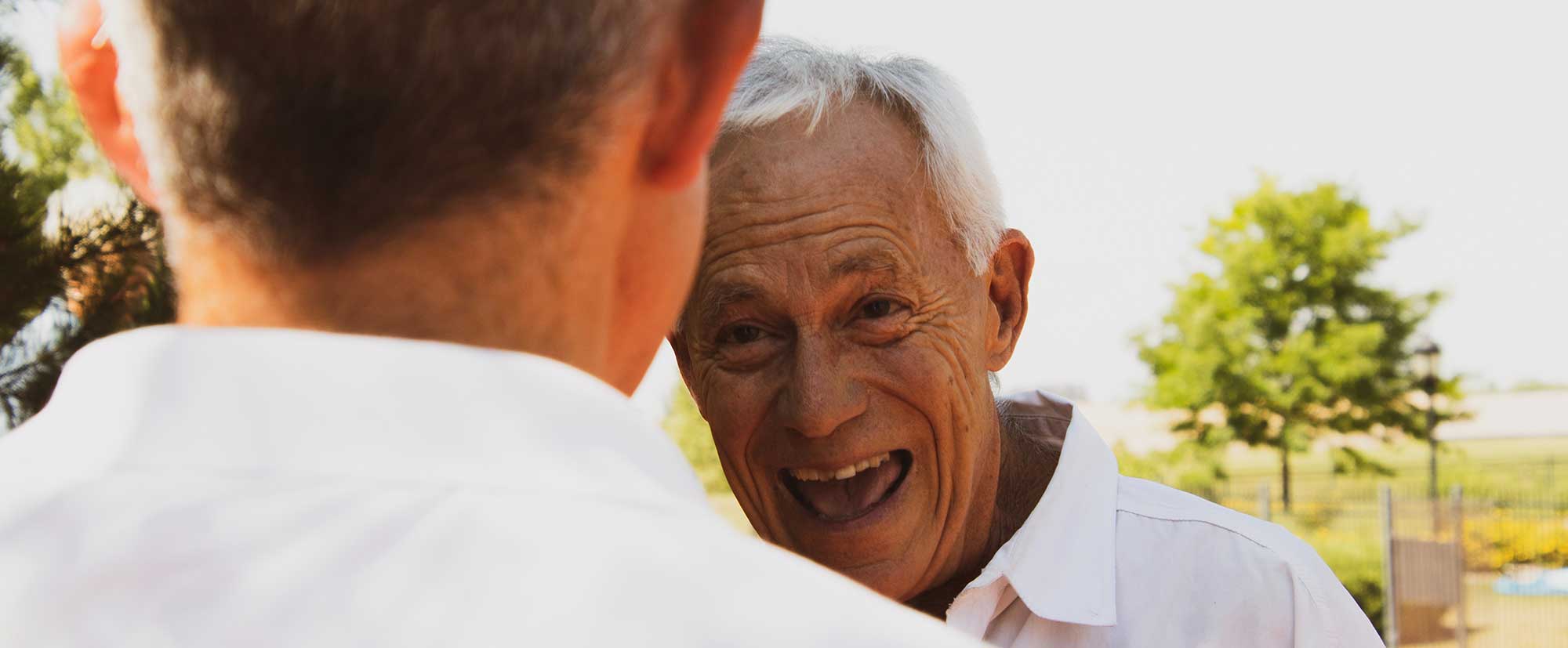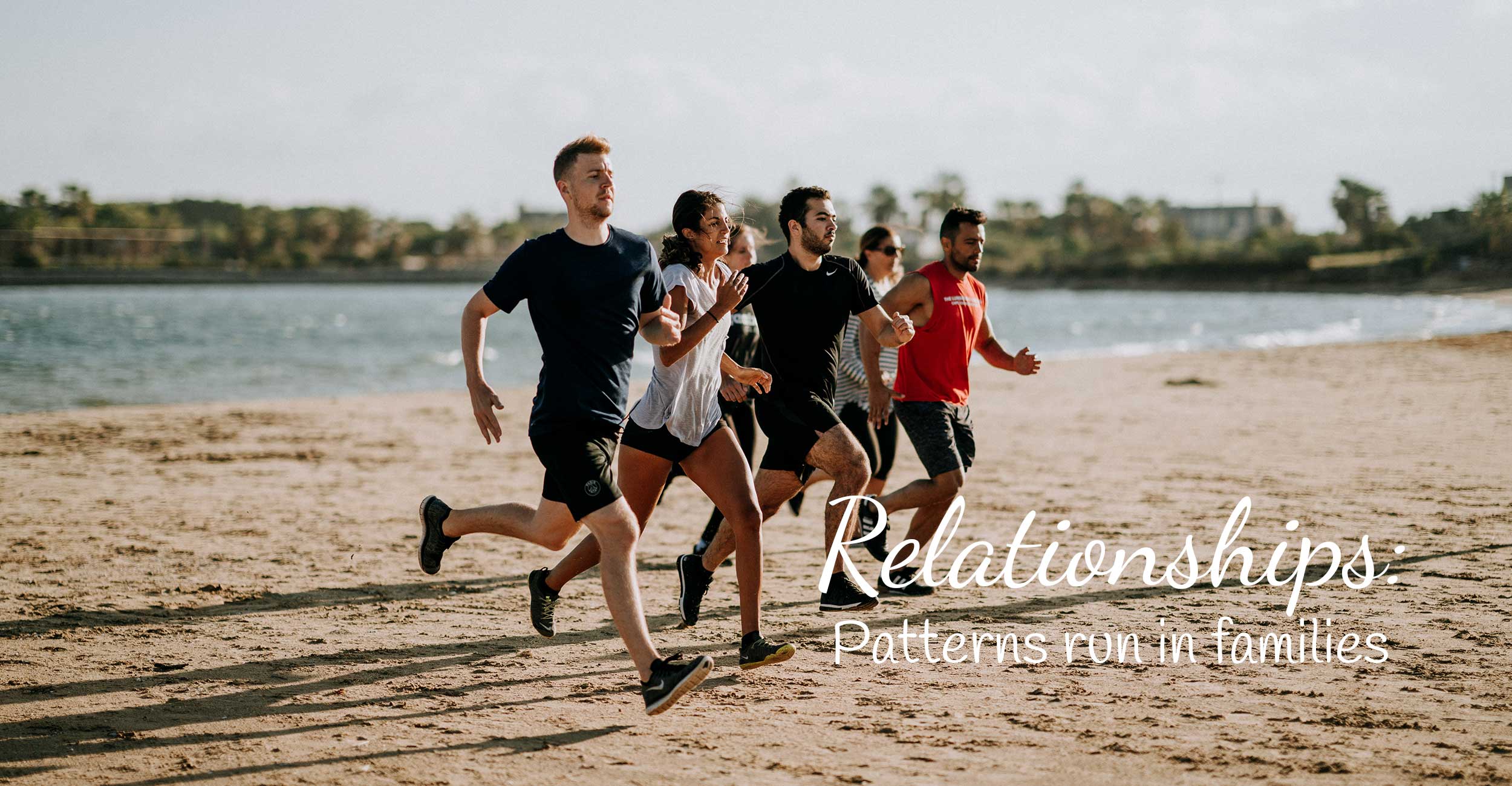
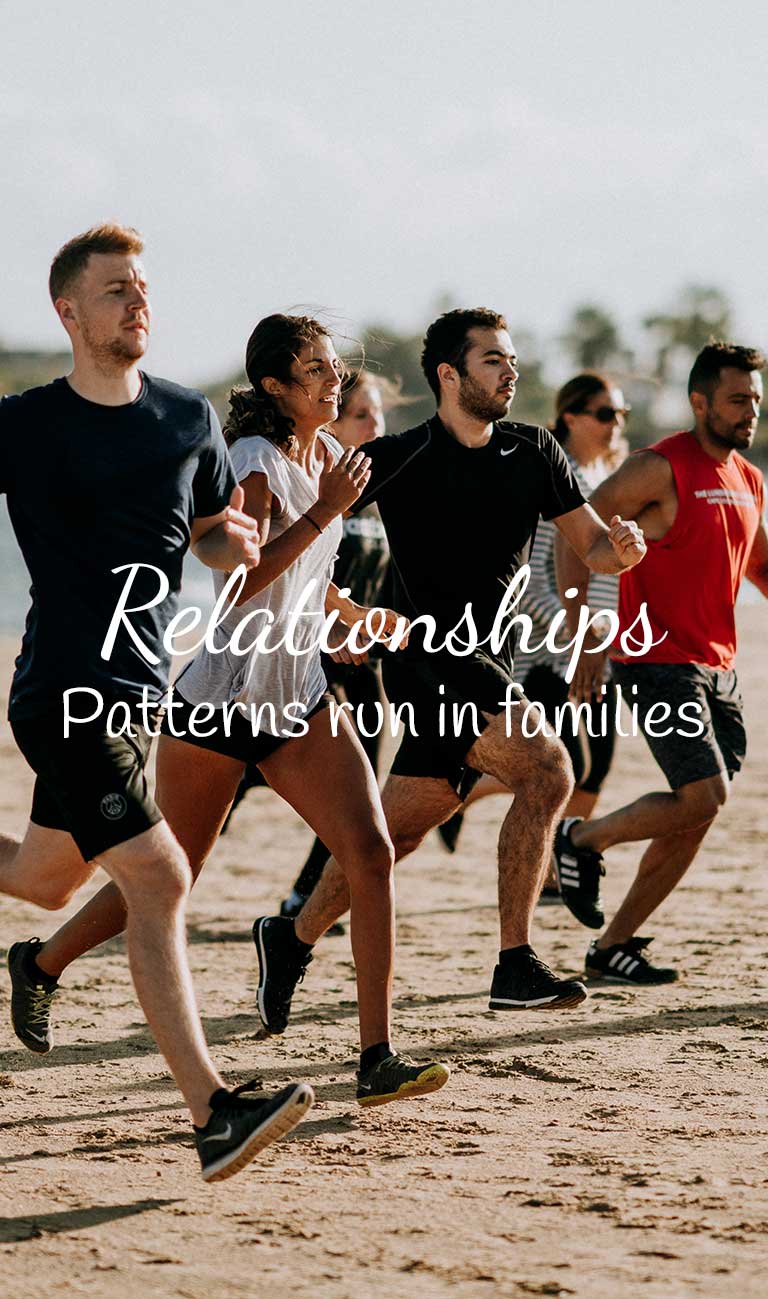
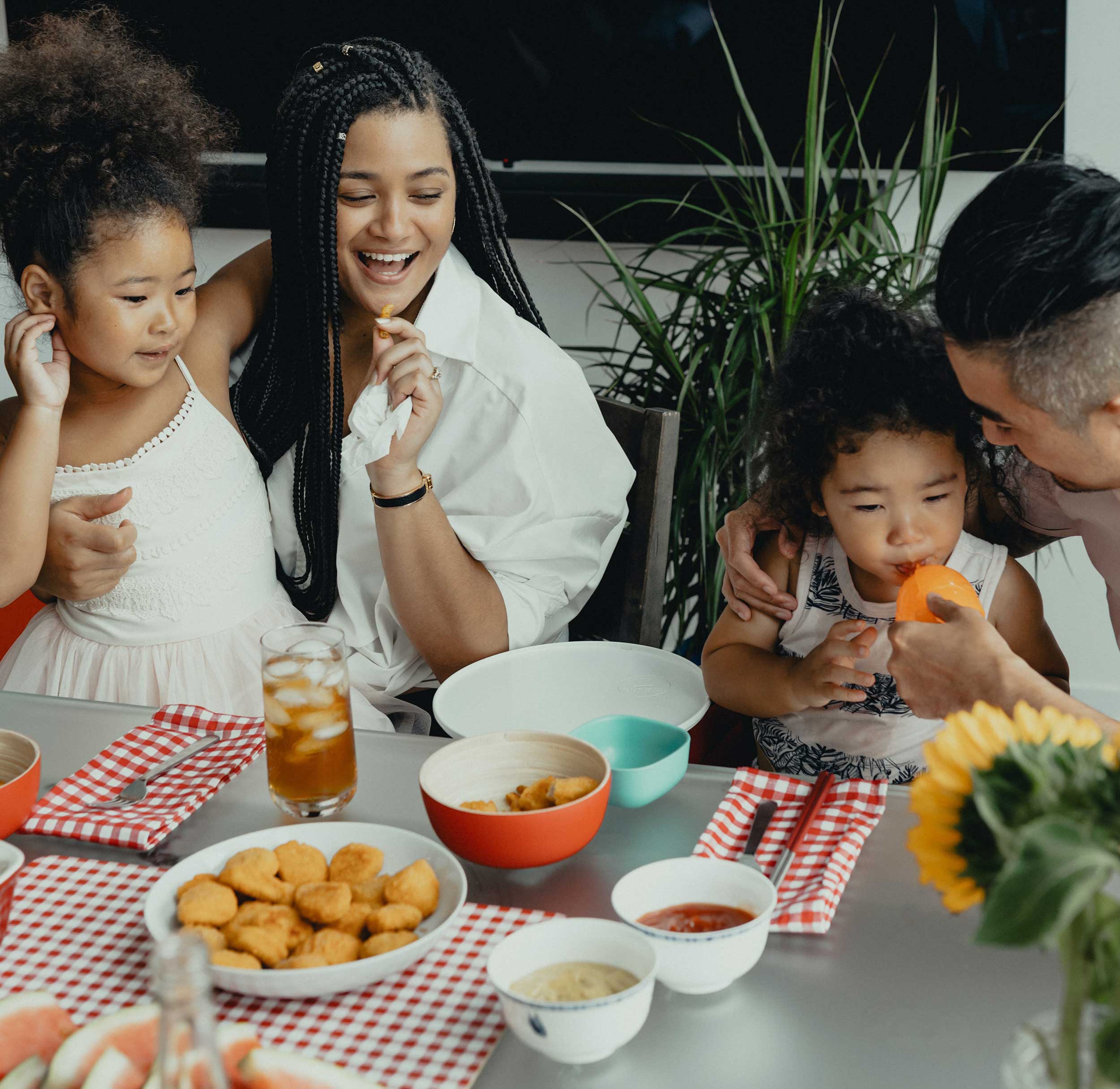
Have you ever spent a holiday period living with your partner’s family?
How many times did you scratch your head and wonder why they were so different?
Has your partner ever done the same when spending time with your family?
Let’s say you’ve noticed your wife’s father is tall and bossy, and her mother is short and mild.
Then you meet the uncles—two tall and bossy, with short, mild wives, and one tall and mild (“like his mother”) with a short, bossy wife.
You notice your wife’s grandfather is tall and bossy, and his wife is short and mild. (And family sagas say his parents were like that too.) Why are these patterns repeated? Because it feels normal.
They don’t even have to think about it. Driving home, you point this out to your wife, and she looks up at you and says mildly, “Hmmm, maybe that’s why I was attracted to a tall, bossy man like you.”
Families teach ways of living and life commandments. (“If you’re embarrassed, lie.” “All worthwhile people are educated.” “Work first, play later.” “Anger is useful.”)
Families teach ways of living and life commandments. (“If you’re embarrassed, lie.” “All worthwhile people are educated.” “Work first, play later.” “Anger is useful.”)
That’s not to say families produce clones—obviously each child inherits different genes and even identical twins have individual personalities.
Plus each child has a different role in the family.
For example, the eldest is often asked to be responsible for the younger children, acting the adult while they play, and so grows up responsible, skilled at management, but often a little more serious.
The middle child is practised at getting along with people of all ages and playing follower or leader as required.
But middle children can be ignored (because they are neither the oldest nor the cute little one) and so can tend to be private, inner people, even in adult life.
Often the youngest will be the most playful and fun, but may be lazy, irresponsible and used to taking nurture and attention rather than giving to others.
These effects are layered onto whatever personalities are already there, and can influence later relationships.
For example, one girl (the youngest) discovered that the last five men she had been out with were the eldest in their family.
Although she had never thought about this before, she had been subconsciously looking for stability and leadership to allow her to stay carefree and fun.
Fight of Flight?
We also learn from our families how to deal with emotions. There are two classic ways to deal with negative emotions:
Fight
Using power, control, blame, stimulation, excitement, rescuing to get control, martyrdom to manipulate, etc.
Flight
Using withdrawal, sedation, tranquilisation (alcohol, drugs, “happy food”, sugar hits, chocolate), “vegging out” and escapism using movies, internet, etc.
All families have these coping mechanisms in various amounts. The healthier way to deal with negative emotions is to feel them, express them appropriately to someone who cares and try to work out what you can learn from them.
Why let your grandfather choose for you?
True example: Alan comes home from another business trip to find his wife is leaving him for someone else.
He is upset, but not as upset as when he hears his children are not sympathetic and do not want to see him.
He takes this as a major wake-up call. He asks his wife what the problem was and she lets him have it: “You’re never here and whenever I want to talk about something emotional, you suddenly discover a job you have to do.
When I’ve tried to love you and compliment you, it’s water off a duck’s back, but two words of praise from your boss and you’ll work all weekend for him. You’re an affirmation-junkie and you hide in your work.”
She has said it all before, but this time Alan listens.
He goes for counselling, scared of what he will find but hoping to repair his marriage—or even if not, to grow for himself. He says to the counsellor, “I’m not sure I want to know this, but let’s dig”. And they think about Alan’s family of origin.
His father was the top salesman in his company and on the road a lot—in fact, Alan barely remembers contact with him as a child.
On holidays, his father would be grumpy or asleep for the first four days and then he’d take on some project: painting the holiday house, making a boat, building a retaining wall.
If anything vaguely emotional came up at home, he would change the topic by saying, “Can we talk about something real?”
Emotion was to be handled by his wife—the classic old-fashioned marriage. Alan eventually realises that he had not received much attention or affirmation from his father, and so craves affirmation from older men—like his boss at work. Alan can work an 80-hour week on one compliment.
He starts talking to his counsellor about ways to like himself simply for being a good person, not for doing. Unconditional love—it’s a term he dimly remembers from Scripture class at school, but he had never felt it before.
Alan gets to wondering why his father was incapable of giving him “wise love”. He discovers that his father’s father was an alcoholic, trying to find comfort in the bottle after losing his own father at 11.
He was a loner and would never talk to anyone about his issues. And he brought up a son in his image. Alan’s father had found acceptance and hope in a church that ruled out alcohol, and so he had at least avoided becoming an alcoholic like his father—but he had become a workaholic instead.
Alan starts to understand what pushes his buttons. As a child, he used to be afraid of being left alone, probably because he was lonely for his father.
His brother coped by being all cuddly and close with their mother and 20 years later, Alan thinks his brother’s marriage is still too clingy and restrictive as though neither really has individuality or freedom (psychologists call this “enmeshed”).
Alan coped by hanging tough as a loner, proving he didn’t need anybody, and dealt with his fear of rejection by getting in first and rejecting other people. But underneath he was anxious to be liked and would do anything for approval. Alan realises he has been faking it. He has not been real about his feelings—about his real self.
The pseudo-self
- obsesses about what other people think
- may not make a decision or be assertive in case someone disapproves
- doesn’t hear compliments (“Oh, I don’t really deserve it.”)
- may be tough or super-competent on the surface, but feels scared
The real self
- knows what they really think and feel (and doesn’t confuse the two)
- doesn’t ask, “Will others say I’m OK?”, but says, “I know I’m OK”.
- is satisfied with approval from no-one but themselves
- will not pretend to be someone else just for acceptance
- enjoys giving and receiving compliments
- is honest, decisive and assertive
Alan decides to get real.
He is told to:
- develop understanding of his family of origin, the ways he was programmed to feel and act, and any hurts and fears from childhood (sadness, rejection, unresolved anger)
- develop self-awareness (senses, feelings, thoughts, wants, actions, body—see our course, “What do you expect?”)
- develop self-esteem, develop himself in relationships, work, hobbies and doing things for others without wanting anything back
- be honest with himself
- rely on himself
(Please note: the word self is used a lot, but not to suggest that this is some grand project that should ignore the help of God. Faith can be a major source of unconditional love and hope, and can offer power to encourage a person to develop themselves like never before. Understanding and accepting the value God places on us is empowering.)
Alan’s outcome:
For six months, he did counselling, read, wrote a journal, prayed and thought.
He attacked this personal-growth task with his usual energy and made rapid progress.
Around that time, his wife’s affair ended because she did not receive the closeness she was hoping for.
Alan asked to see her and she noticed major growth.
They did a lot of talking (at times with help from a counsellor), went through a period of dating and eventually got their family back together.
Traumatic families
In families where there is emotional trauma, children are classically pushed into fixed roles. Meet a family with an abusive alcoholic father:
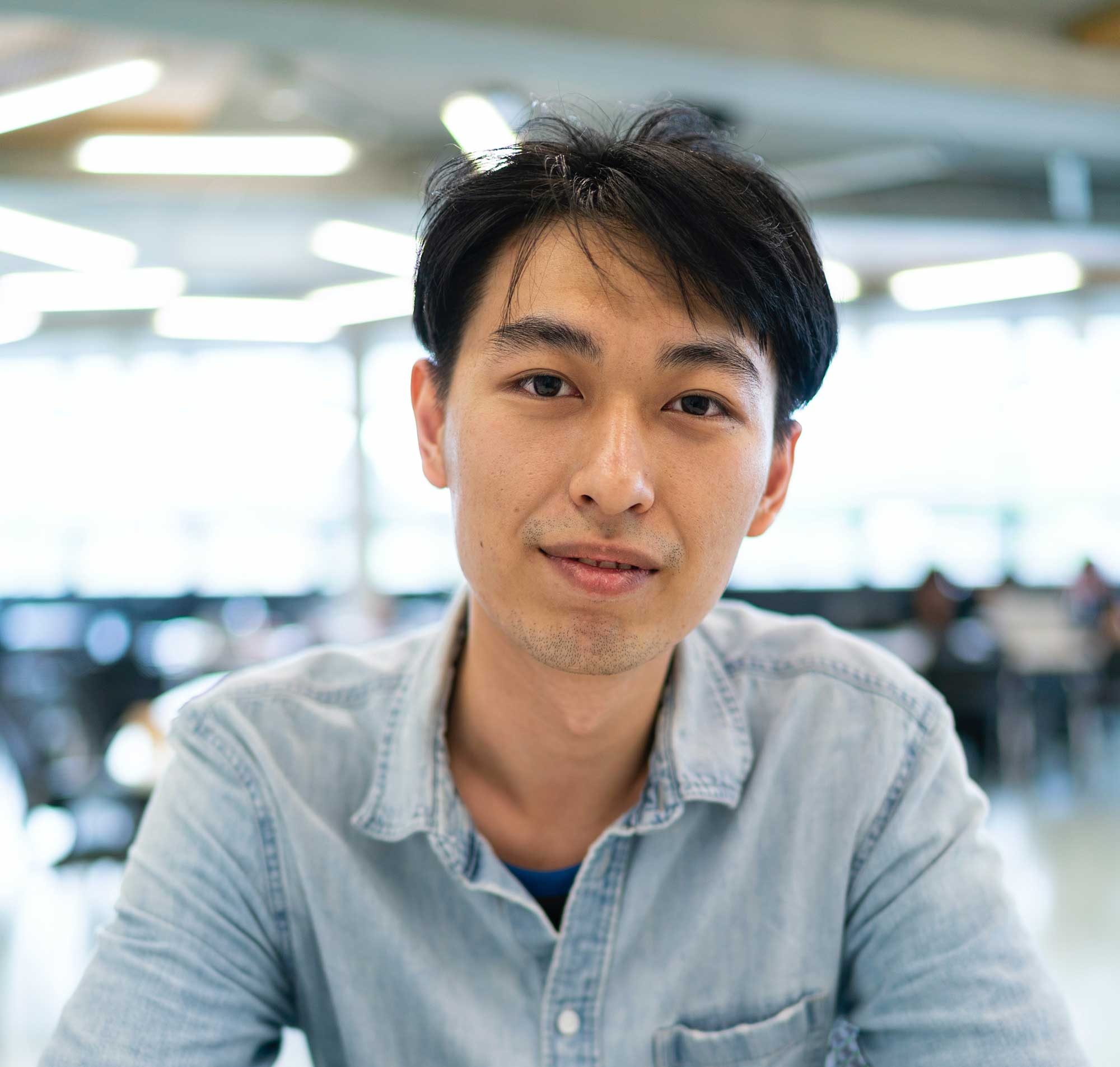
The Family Hero
Danny, 31, is responsible, perfectionistic and over-achieving. He is a super reasonable negotiator.
When he pulls up in his BMW for a family get-together and talks about his latest work promotion, it’s almost like his family thinks, “See, we must be OK. We’re with him.”
He carries the family pride and shows that everything is fine. Where did he learn this? When his father used to come home roaring drunk and bash his mother, Danny used to cheer everybody up, tidy the house and send everyone to school with ironed clothes and lunches, and soldier on like everything was fine—and they all thanked him for this.
Danny is a very positive thinker, but his problem is that he buries his negative emotions—his fears and his hurts are almost never shared because he fears people might think less of him.
Sometimes he struggles with depression and he wonders if one of his string of girlfriends will ever know the real him. ..

The Family Mascot
Nick, 22, has an amazing sense of humour.
He is a brilliant IT salesman who attracts bright, responsible women and gets bored with them. Nick’s way of dealing with his father’s
violence was to make dark jokes. When he was afraid, he would tell funny stories and break the tension so the family felt better.

The Scapegoat
(or “identified patient”)
Danny, 31, is responsible, perfectionistic and over-achieving. He is a super reasonable negotiator.
When he pulls up in his BMW for a family get-together and talks about his latest work promotion, it’s almost like his family thinks, “See, we must be OK. We’re with him.”
He carries the family pride and shows that everything is fine. Where did he learn this? When his father used to come home roaring drunk and bash his mother, Danny used to cheer everybody up, tidy the house and send everyone to school with ironed clothes and lunches, and soldier on like everything was fine—and they all thanked him for this.
Danny is a very positive thinker, but his problem is that he buries his negative emotions—his fears and his hurts are almost never shared because he fears people might think less of him.
Sometimes he struggles with depression and he wonders if one of his string of girlfriends will ever know the real him. ..
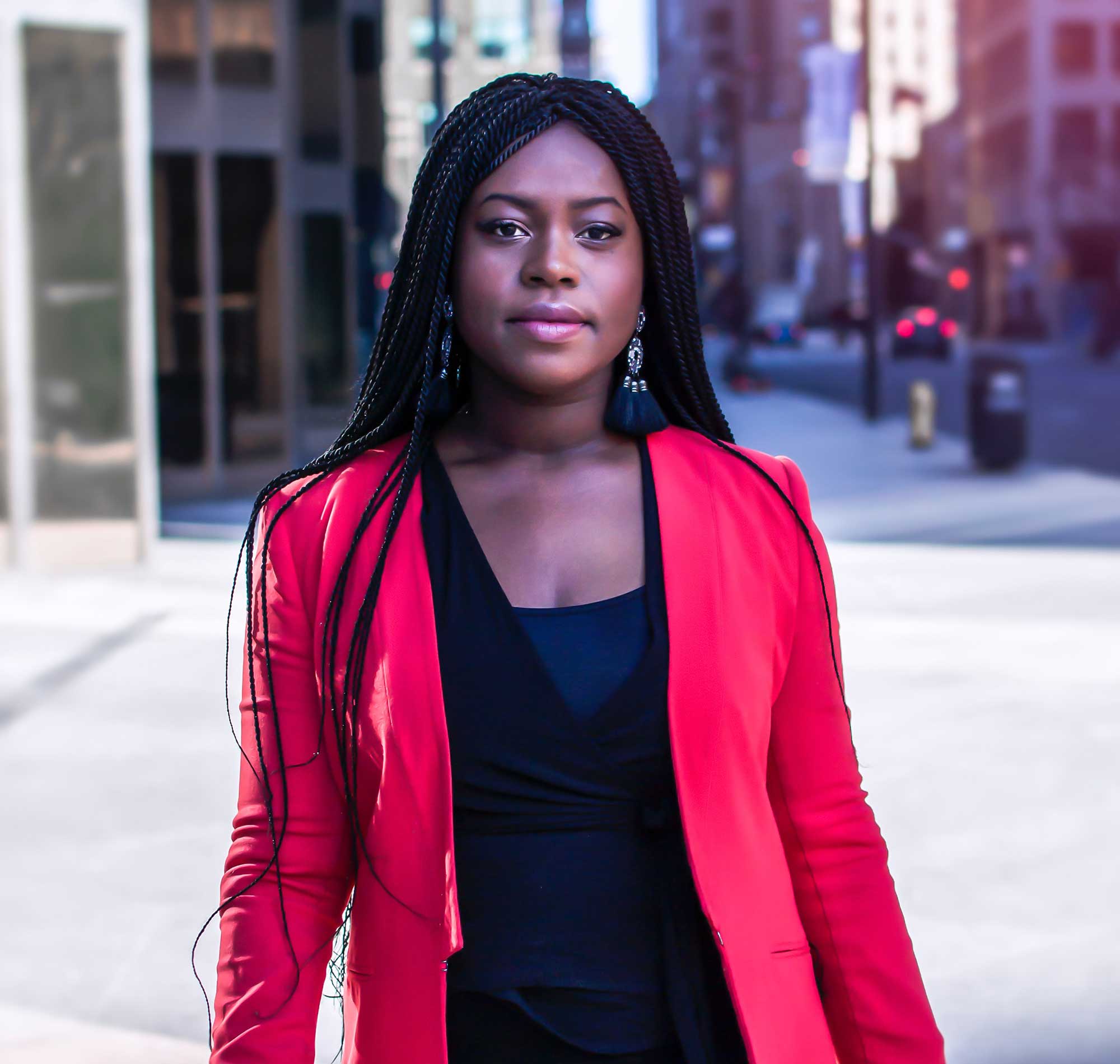
The Lost Child
Sarah, 28, is very quiet and hard to get toknow. She has a steady job as a clerk in agovernment office, pays rent and watches a
lot of films on the TV in her room. She is neverin trouble.
At family get-togethers, she enjoys listening and being entertained by the others, and only comments when someone asks her a direct question. When her father used to flail angrily around the house, her solution was to hide and keep quiet. She is still doing it. She doesn’t really have friendships or romantic attachments, and rarely shows feelings.
She sometimes wonders if she is really alive.
These patterns are classic in what psychologists call the dysfunctional or chemically-dependent family.
Adult children of alcoholics (ACOAs) form an extreme example, but these symptoms can result from parents with other addictions—work, gambling, food/dieting, sex, unhealthy religion, money, power, shopping, internet, games, co-dependent relationships, sports. (Note: many of these things can be good in their place, but they can also be addictive.)
In simple terms, an addicted parent cannot give enough “wise love” to the child and so the child seeks various ways of coping with this emotional response.
The cruel thing is that this child will go on to develop their own addiction and—even crueller—be unable to give wise love to their children, and so the pattern will continue into the next generation unless somebody decides to break the cycle.
This can be done.
The Bottom Line
If you see inherited behaviours, thoughts or feelings in yourself that you don’t want, you have a choice.
You can let your great-grandfather’s problems control your life and your partner’s.
Or you can decide that the problem stops in your generation.
Obviously we don’t have space here to go into that fully, but your counsellor or minister could refer you to specialist family of origin counselling or recommend books on the topic.
What’s the best gift you can give your family?
